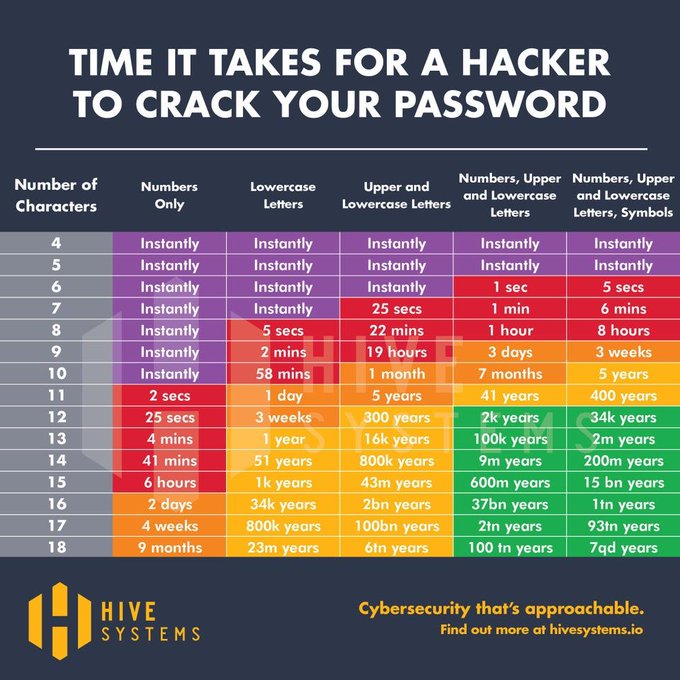 GarryB Thu Mar 04, 2021 3:35 am
GarryB Thu Mar 04, 2021 3:35 am
The key point however is that by adding letters adds 26 variations for each character in the password and differentiating between lower case and capitals doubles that in an english character set.
Honestly the best password would be in Chinese because the number of variations is huge.
Even just using numbers but using Hexadecimal numbers increases the variations... it is not complex.... it is like working out your chances of winning lotto.
6 numbers between one and 40, so the chance of getting the first number right is one in 40... so your options are 40, 39, 38, 37, 36, and 35, but it is not just a case of getting one right, you need to get them all right though they don't need to be in order, so the chances of getting that lotto win are 40 x 39 x 38 x 37 x 36 x 35...
if you have a password that is 6 digits long and is a decimal number then that is 10 x 10 x 10 x 10 x 10 x 10, because you can choose 0-9 for each number... so the number of possible combinations is 10 ^ 6...
By allowing (english) letters of either case that means 10 + 26, or 36 ^ 6, but having upper and lower case means 10 + (26 x 2) ^ 6.
Increasing the key set or the number of characters in the password greatly increase the possible key combinations.
Most 8 bit passwords have 256 combinations... based on the keyset of an 8 bit keyboard character set, but new keysets that have foreign characters can be 16 bit or 24 bit character sets.
Another factor is that those cracking times are estimates and are generally based on the time it would take to go through the entire key set.... but it might get the password much quicker than that... it is like looking for something in an index... that speed is basically starting at the start of the index and going through one entry at a time to find something. If the password is Aardvark then it might get it very quickly.
Adding AI neural networks to help can massively speed up the process.


 Password security
Password security
 Re: Password security
Re: Password security Re: Password security
Re: Password security Re: Password security
Re: Password security Re: Password security
Re: Password security Re: Password security
Re: Password security